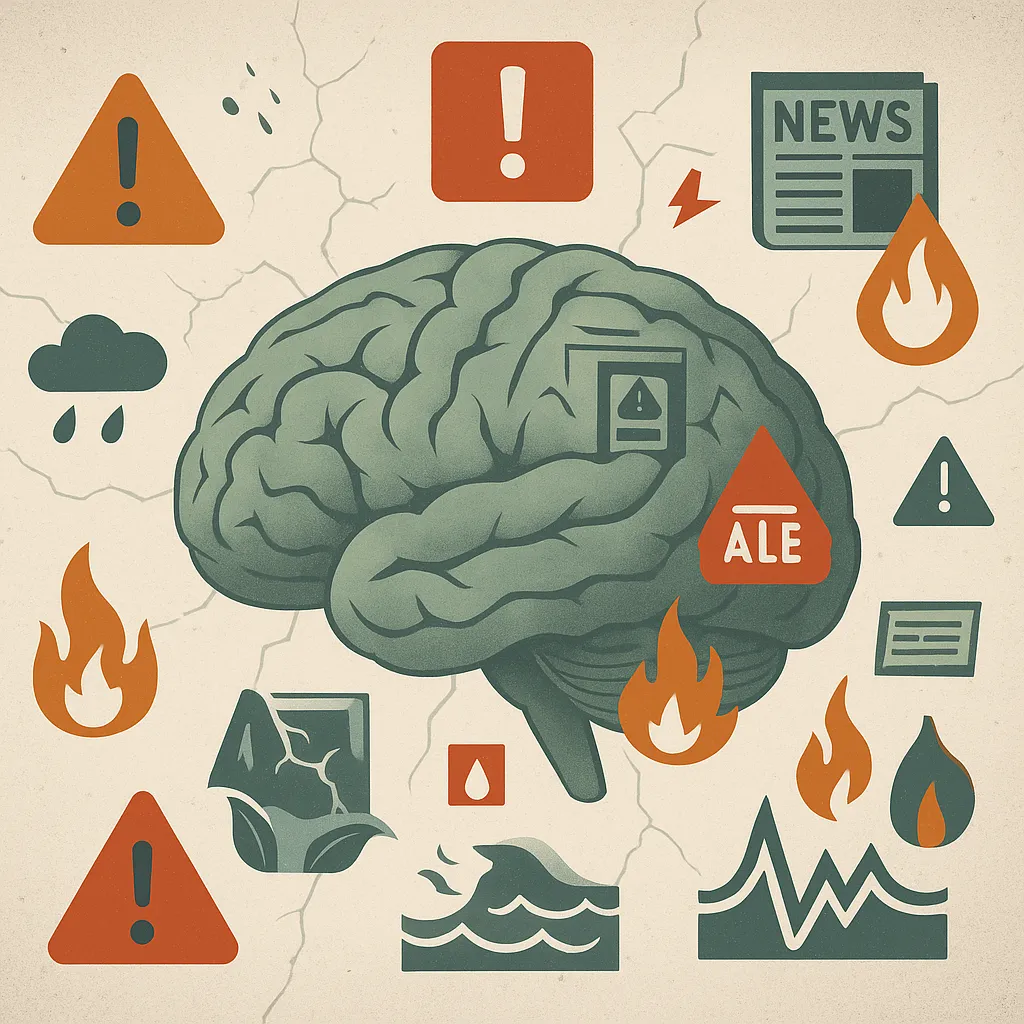Introduction
You sort your trash. You use a refillable water bottle. You’ve even made the switch to bamboo toothbrushes. And still, when you hear about global disasters or plastic oceans, you get that feeling in your gut—the one that says, “Is anything I do even doing any good?”
That feeling has a name: eco anxiety.
This isn’t just in your head. Increasing numbers of people—particularly in the U.S.—are feeling intense emotional distress related to the condition of the world. And while it’s great to care about the Earth, to feel powerless all the time isn’t. Let’s explore why this occurs and how to work with it without becoming burnt out.
Table of Contents
What Is Eco Anxiety and Why Does It Hit So Hard?

Eco anxiety is the persistent fear of ecological apocalypse. It’s that weight of feeling you’re doing your bit while corporations are churning out pollution by the ton. You recycle, but the headlines shout it won’t ever be enough. You cycle to work, but then discover record-breaking emissions from world industries.
It’s not that what you do doesn’t count—it does. But the disconnect between personal responsibility and collective inaction builds a psychological disconnect. You feel deeply, but feel deeply powerless. And that emotional discord? It wears on your nervous system.
Your Nervous System Is Not Built for This Much Doom
Our brains developed to deal with short-term threats: a storm, a predator, a sudden crisis. But eco anxiety is chronic and persistent. Every climate-related alarm drives your fight-or-flight response, bathing your body in stress hormones. There’s no “off switch,” because the threat never goes away.
Constantly being activated can result in
- Emotional exhaustion
- Difficulty sleeping
- Feeling hopeless
- Avoidance or numbness
And here’s the catch: individuals who care the most tend to hurt the most. The more emotionally attached you are to saving the world, the more it gets to you when it appears that the world doesn’t care.
Why “Doing Your Part” Doesn’t Feel Like Enough Anymore
You’re instructed to recycle, reduce plastic use, save water. But you watch billion-dollar corporations littering waste, oil spills with no consequence, and environmental regulations getting rolled back. The system is demanding people do something—while businesses get a free pass.
That disconnect creates eco anxiety. It’s like you’re shouldering the burden of the world. and it’s tiring.
But here’s the reality: you are not helpless. You’re simply overwhelmed.
From Powerless to Purposeful: What Actually Helps
🌀 Accept your feelings
You can be overwhelmed. Denying it doesn’t make it disappear. Discuss it. Write it out. Share with others who get it.
🌿Move from perfection to influence
You don’t need to be a “perfect environmentalist.” Prioritize high-impact actions (such as lowering meat or energy consumption) rather than stressing about each plastic package.
🤝Create climate community
Eco anxiety feeds on isolation. Join online or local groups that are striving for change—activism becomes so much more promising (and sustainable) when done with others.
📵Unplug deliberately
You can’t solve the climate crisis doomscrolling. Set boundaries around news consumption, particularly before sleep. Your nervous system will appreciate it.
💚Acknowledge small victories
Yes, your efforts matter. Each reusable bag, each skipped car ride, each conversation—it all adds up. Real change happens in waves, not all at once.
Final Thoughts: It’s Okay to Care Deeply and Still Feel Tired
Eco anxiety is not a signal that you are weak—only that you’re paying attention. You’re empathetically attuned to the well-being of the planet, and that is unusual. But in order to continue fighting for the planet, you must also preserve your own mental wellness.
Take a deep breath. You’re not alone. And you don’t have to bear it alone.
📌 Follow us here: @rootswingsandwellness
Join our community and be part of a movement that prioritizes kindness, self-compassion, and intentional parenting!
Check out our insightful articles on family wellness and parenting at Roots, Wings & Wellness.